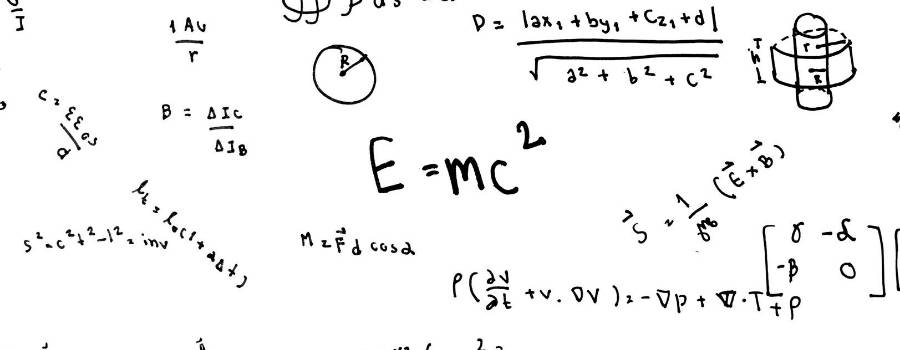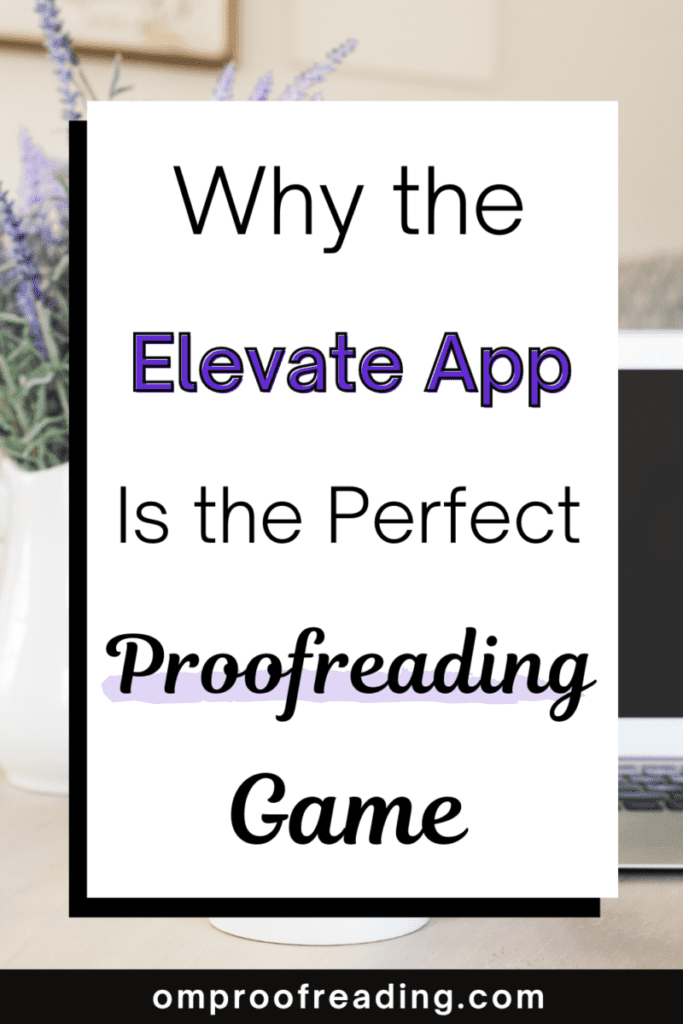This article may contain affiliate links. Please see our affiliate disclaimer in the footer menu for more information. Thank you for your support!

In studying to become a professional proofreader, I was eager to find a fun proofreading game that would make the learning process even more exciting. We know how easily children learn by playing games in school. I found that adults can learn proofreading skills and have fun at the same time by using an app called Elevate, which doubles as a proofreading game.
If you’ve ever downloaded the Elevate app on iOS or Android, you have a fantastic built-in proofreading game at your fingertips. Almost half of Elevate’s games are excellent for developing proofreading skills—especially games like Commas, Punctuation, Spelling, Syntax, and Details.
I’ve been using Elevate for several years, and it’s helped me immensely in honing the skills I use in my job. Elevate strengthens your vocabulary and offers a wide range of proofreading-specific games that help increase your knowledge of grammar, punctuation, capitalization, spelling, and incorrect word choices (e.g., imminent vs. eminent).
Finally, I’ve found that Elevate follows the rules laid out in The Chicago Manual of Style—the most commonly used style guide for professional proofreaders.
Although Elevate wasn’t originally designed to be a proofreading game, let’s discover how you can use it for that purpose!
How Does the Elevate App Serve as the Perfect Proofreading Game?

Apple chose Elevate as the App of the Year in the United States in 2014.
Elevate offers customized training for your brain. Since I had been out of school for a while before starting the Proofread Anywhere proofreading course, I was sure my brain could benefit from some training.
The app contains 40+ games to improve cognitive skills (e.g., focus, processing speed, memory), which have been shown to increase productivity, income, and confidence.
More productivity, more money, and more confidence. Where do I sign up?
Experts in neuroscience and cognitive learning have helped develop the games, which are based on extensive scientific research.
The games are short, engaging, and elegantly designed. They focus on four key areas:
- writing
- reading
- speaking
- math
Almost half of the games help hone your proofreading skills.
Of course, the games in the areas of writing, reading, and speaking are the ones that apply to proofreading.
Also, a handful of games help improve copyediting skills. I’m going to mention these games’ names since proofreading and copyediting overlap.
The chart below shows the three relevant skill areas (writing, reading, and speaking) and the names of the games within each area that help you refine your proofreading or copyediting know-how.
After I tell you a bit more about Elevate as an app, I’m going to give you more information about all of the games that apply to proofreading, so you’ll be able to understand why they’re so effective.
Elevate Games that Help Develop Proofreading Skills
| Proofread- ing Games | Copyediting Games | |
|---|---|---|
| Writing | Commas Detail Error Avoidance Expression Syntax Inversion Punctuation Spelling | Brevity Clarity Transitions |
| Reading | Agility Association Connotation Word Parts Context Visualization | |
| Speaking | Diction Memory Precision | Adjective Recall Eloquence |
Elevate Provides a Useful Vocabulary Unit
In addition to entertaining games, Elevate offers a study section with a vocabulary unit based on roots, prefixes, and suffixes. I’ve found that unit to be particularly helpful for improving my ability to decipher the meaning of words when I’m proofreading technical documents.
Other study sections include public speaking, speed reading, and math. I would definitely refrain from using any newfound speed-reading skills in your proofreading practice. Speed reading and proofreading are mutually exclusive.
Elevate Gives You Tailored Training Sessions
Elevate supplies you with tailored daily training sessions that change over time according to your progress.
This means that the level of challenge will always be well suited to your current skill level.
One aspect of Elevate I appreciate is that when I get an answer wrong in one of the games, it gives me a brief explanation of why or a tip to help me in the future. Thanks, Elevate!
Sometimes I decide to train with Elevate to give me a short but productive break from my proofreading work. I just make sure to choose how many games I’m going to play in advance so that my “short” break doesn’t turn into a prolonged playtime. 😉
Elevate helps me keep my proofreading prowess up to par.
Elevate Tracks Your Progress and Achievements
The app tracks your progress across all four areas using what it calls the Elevate Proficiency Quotient (EPQ).
Your EPQ increases as you progress through six levels of proficiency:
- novice
- intermediate
- advanced
- expert
- elite
- master
Furthermore, it gives you a training calendar that keeps track of how much you’ve been practicing.
Finally, it tracks your achievements, which helps keep you motivated. For example, you earn the title of Training Tycoon after completing 50 training sessions. Woo-hoo! You’ve got this! 😊
Since I started using Elevate, it has been updated numerous times. The updates have included improvements to the user experience and adding a ton of new content! I’ve been quite impressed!
Elevate Offers a Free Version and a Paid Version
Elevate offers a basic version that is free to download on both Apple and Android devices. With the free version, you can play three games per day.
Elevate also provides a pro version that gives you unlimited access to all the games. This can be paid as a monthly or yearly subscription.
If you subscribe to Elevate, you’ll see the fee before you complete the payment.
Finally, the Elevate app supports family sharing. Up to six family members can enjoy the app with family sharing.
Now let’s continue to understand how Elevate can help proofreaders sharpen their eagle eyes by taking a closer look at each of the 17 relevant writing, reading, and speaking games.
Proofreading Skills Gained from Elevate’s Writing Games

1) Commas: This game examines one or two sentences at a time. The first round involves tapping the space where a comma is missing, and the second round involves tapping to remove an extra comma.
2) Detail: The object of this game is to help you quickly catch typos and pick up errors that spell-check would miss. You’ll be looking at one paragraph in each round.
The first round deals with capitalization, question marks, and periods.
The second round involves misspellings and typos, and the last round consists of extra and missing words.
Finally, the bonus round entails looking for a single error that could be from any of the categories of errors listed above.
3) Error Avoidance: Here, you improve your ability to identify commonly misused words (e.g., cord vs. chord; decent vs. dissent), working with one sentence at a time.
4) Expression: This exercise helps you to learn tricky idioms.
For example, is it correct to write that someone got off scotch-free or scot-free?
Here’s another one: Do you say that someone is at your beck and call or your beckon call?
Correct Answers: scot-free / beck and call
5) Inversion: This is a fun game to enrich your vocabulary. As your screen fills up with balloons containing one word each, your job is to pop two balloons simultaneously with words that are opposites before your screen fills up with balloons.
You’ll pair opposites like durable and delicate, sane and deranged, and inflexible and elastic.
6) Punctuation: Get a grip on punctuation! This will help you learn the rules for using various punctuation marks: commas, semicolons, colons, hyphens, apostrophes, and more.
7) Spelling: This exercise trains you to spot spelling errors, including ones that slip right by your spellchecker. It is played in three rounds, each involving a specific game.
A few of the games you can play include the following:
- Flip-Flop
- Add a Letter or OK?
- Double or Single Letter?
In Flip-Flop, you have to decide the correct order for the two letters needed in the middle of a word to complete it. For example, take the partial word d–f. Would you choose ae or ea to make this word whole?
Now for Add a Letter or OK? Would you add an n to anual to make it a properly spelled word?
Last but not least, let’s look at Double or Single Letter? Should we add an extra p to raport, or is it spelled correctly as is?
Correct Answers: deaf / annual / rapport
8) Syntax: This game aims to help you grasp complicated grammar rules, including those pertaining to verb tenses, commonly confused words, and proper pronoun usage.
Proofreading Skills Acquired from Elevate’s Reading Games

9) Agility: This exercise helps you amplify your vocabulary. It gives you one word, and you have to match it to a synonymous word.
10) Association: This is another game designed to increase your vocabulary. It teaches you to decode unknown words by connecting them with words you know.
11) Connotation: Developing your vocabulary by classifying new words according to connotation is the goal of this exercise. For example, does the word venerable have a positive or negative connotation?
Correct Answer: a positive connotation
12) Context: Enlarge your vocabulary by learning new words from context. You’re given a sentence with a missing word. You have to select which word (among many) best completes the sentence.
13) Visualization: This exercise will help you build your vocabulary by using images to help you remember new words. Cheers to visualization!
14) Word Parts: Enhancing your vocabulary is the name of this game. It helps you to decode the meaning of new words by using prefixes, roots, and suffixes.
Proofreading Skills Learned from Elevate’s Speaking Games

15) Diction: This game helps you master the use of prepositions, adverbs, adjectives, frequently confused words, and more. You’ll be given one sentence at a time, and you need to decide whether a particular word in the sentence is correct or incorrect.
16) Memory: This exercise helps you find words from memory faster. You’ll have the first few letters of a word and the word’s definition. By tapping on the letter tiles below the partial word, you have to correctly complete the word.
17) Precision: This game gives you a break from reading to assist you in identifying errors in speech. The errors relate to subject/verb agreement, verb tenses, prepositions, pronouns, and more.
Five other games within the categories of writing, reading, and speaking are excellent but not particularly helpful when it comes to proofreading. The names of those games are Pronunciation, Comprehension, Extraction, Refinement, and Processing.
Hey, What About All Those Math Games?!

I’d be remiss if I left out the marvelous math mix present in Elevate’s repertoire of engaging games.
Elevate hosts the following math games: Averages, Conversion, Discounting, Division, Equivalence, Estimation, Measuring, Percentages, Proportion, Purchasing, Subtraction, and Tipping.
Although these games won’t help you improve your proofreading ability, they can be useful for certain skills you may use if you decide to run your own proofreading business.
For example, you might need to figure out a monthly budget or do your taxes. Sharpening your mathematical mind certainly doesn’t hurt, and it can make mundane tasks like budgeting and taxes a bit more enjoyable.
I hope you enjoy the pursuit of sharpening your proofreading skills and having fun in the process!
If you’re interested in other fun ways to take your proofreading skills to the next level, check out my post that gives you links to over 450 proofreading tests and quizzes!
I’ve also penned a post about the errors proofreaders are trained to look for if you happen to be curious.
Best wishes to you!
“Against the forces of darkness and terror, love and compassion shall always prevail.”
– George Takei

Recent Posts
Punctuation is important because it enables us to communicate our message clearly and effectively. Without punctuation, we wouldn’t understand how units of a sentence relate to one another or how...
Although you're probably somewhat familiar with adverbs, you may be unaware of sentence adverbs. As a trained proofreader who has studied the parts of speech, I can help you understand this unique...
